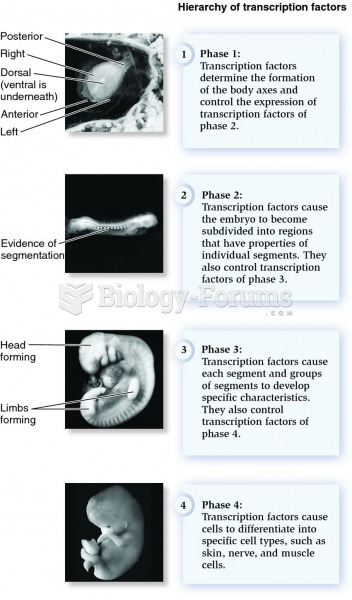|
|
|
Your skin wrinkles if you stay in the bathtub a long time because the outermost layer of skin (which consists of dead keratin) swells when it absorbs water. It is tightly attached to the skin below it, so it compensates for the increased area by wrinkling. This happens to the hands and feet because they have the thickest layer of dead keratin cells.
Urine turns bright yellow if larger than normal amounts of certain substances are consumed; one of these substances is asparagus.
The average human gut is home to perhaps 500 to 1,000 different species of bacteria.
In 1835 it was discovered that a disease of silkworms known as muscardine could be transferred from one silkworm to another, and was caused by a fungus.
Thyroid conditions may make getting pregnant impossible.







